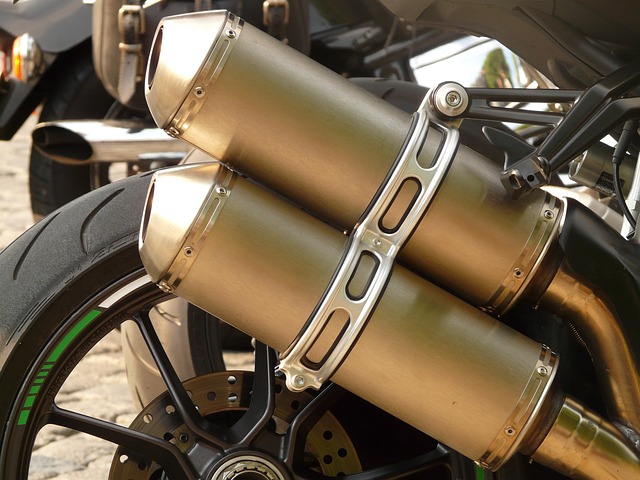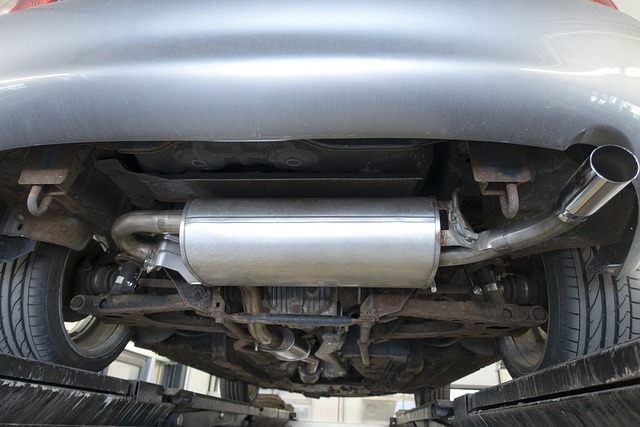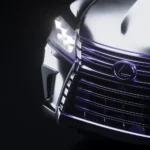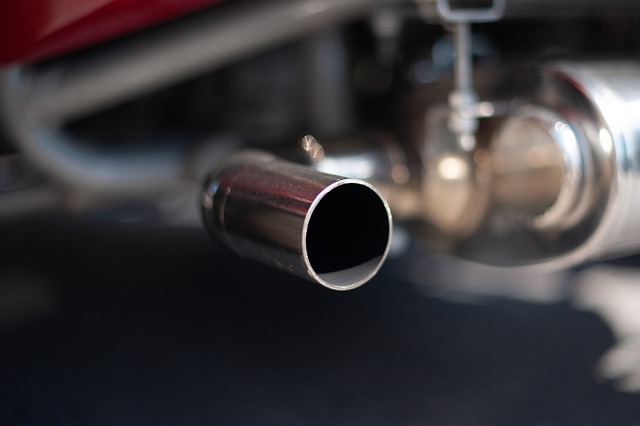An exhaust pop, also known as a “backfire,” occurs when unburnt fuel ignites in the exhaust system. This can happen due to various factors, including rich air-fuel mixtures and sudden throttle release.
An exhaust pop, also known as an exhaust backfire, is a loud popping sound that occurs when unburned fuel ignites in the exhaust system of a vehicle.
This phenomenon can be heard particularly during deceleration or when the engine is revved, and it often captures the attention of unsuspecting bystanders.
So, why does an exhaust pop?
While an exhaust pop may seem like a simple noise, it is actually the result of complex interactions between the engine’s combustion process and the flow of fuel and air through the exhaust system.
Understanding why an exhaust pop occurs requires delving into the physics and mechanics of the internal combustion engine, as well as the role of the exhaust system in mitigating the effects of these combustion events.
Why Does an Exhaust Pop?

The exhaust system in a vehicle plays a crucial role in removing harmful gasses from the engine and improving engine performance.
Exhausting pops occur when unburned fuel ignites in the exhaust system, resulting in a loud popping sound. This phenomenon can have various implications, including indicating engine issues, such as a misfire or a rich fuel mixture.
Now, why does an exhaust pop? Understanding the causes of exhausting pop can help diagnose potential engine problems and ensure the overall health and performance of the vehicle. Here are the causes for the exhausting pop occurrence.
Unburnt Fuel Ignition: Incomplete combustion in the engine can cause small amounts of unburnt fuel to enter the exhaust system. When this unburnt fuel encounters high temperatures in the exhaust, it can ignite, creating a popping sound.
Rich Air-Fuel Mixture: A rich mixture contains an excess of fuel relative to air. This can lead to unburnt fuel making its way into the exhaust system, where it can ignite due to the high temperatures.
Sudden Throttle Release: When you suddenly release the throttle after accelerating, the abrupt reduction in exhaust gas flow creates a vacuum in the exhaust system. Fresh air is drawn in, and if there’s unburnt fuel present, it can ignite due to the residual heat.
Exhaust System Design: The design of the exhaust system can influence how exhaust gases mix. Factors like the presence of resonators or mufflers can affect the conditions for unburnt fuel to ignite.
Engine Modifications: Aftermarket modifications, such as installing a high-performance exhaust system or tuning the engine for more power, can alter the exhaust flow and back pressure. This can influence the likelihood of exhaust popping.
Cold Weather: Lower temperatures affect how efficiently fuel vaporizes and burns in the engine. In colder conditions, there might be more unburnt fuel that reaches the exhaust system and can ignite.
Ignition Timing Issues: Incorrect ignition timing can result in unburnt fuel being expelled into the exhaust system. If the timing is off, the spark plugs might not ignite the fuel at the optimal moment.
Faulty Spark Plugs: Malfunctioning spark plugs might not ignite the fuel-air mixture properly, leading to unburnt fuel reaching the exhaust and potentially causing pops.
Exhaust Leaks: Leaks in the exhaust system can introduce oxygen into the exhaust gases. When this oxygen mixes with unburnt fuel, it can create conditions for ignition and popping.
Air Injection System Malfunction: Some vehicles have an air injection system that introduces fresh air into the exhaust to help burn any unburnt fuel. If this system fails or malfunctions, unburnt fuel can accumulate in the exhaust, leading to backfires.
What are the Benefits and Drawbacks of Exhausting Pop?

Indeed, it is essential to discuss the benefits and drawbacks of exhausting pop-ups to understand their impact on user experience and overall marketing effectiveness.
Taking into consideration the importance of this discussion can ultimately lead to more effective and user-friendly marketing strategies.
The exhausting pop of vehicles has both benefits and drawbacks. Let’s discuss them.
Benefits and Drawbacks of Exhaust Pop:
Benefits:
Aesthetic Appeal: Controlled and occasional exhaust pops can add a sporty and aggressive sound to a vehicle’s exhaust note, enhancing its overall aesthetic appeal.
High-Performance Perception: Exhaust pops are often associated with high-performance vehicles. Hearing pops can create the impression that the vehicle has powerful engine capabilities and performance modifications.
Engagement and Feedback: For some drivers, hearing exhaust pops provides auditory feedback about throttle inputs and engine performance, enhancing the driving experience and connection with the vehicle.
Drawbacks:
Engine Stress: Frequent exhaust pops might indicate an imbalance in the air-fuel mixture or ignition timing, potentially causing stress on engine components and reducing engine longevity.
Catalytic Converter Damage: Unburnt fuel igniting in the exhaust can lead to increased temperatures in the exhaust system. Over time, this can damage the catalytic converter, which is essential for emission control.
Misdiagnosis: Pops can sometimes mask underlying engine issues. Relying solely on exhaust sound to diagnose engine health might lead to overlooking important problems that require attention.
Legal and Emission Concerns: In regions with strict emission regulations, uncontrolled exhaust pops can result in higher emissions and non-compliance with legal standards, leading to fines or vehicle inspection failures.
Noise Pollution: Loud and excessive exhaust popping can contribute to noise pollution, disturbing both the environment and communities in which the vehicle operates.
Mechanical Failures: In extreme cases, uncontrolled backfires might cause damage to the exhaust system, including cracks, leaks, or even catastrophic failures, necessitating costly repairs.
In conclusion, exhaust pops can add an appealing auditory dimension to a vehicle but need to be managed carefully to avoid detrimental effects on engine health, emissions, and overall vehicle performance.
FAQs
Q1: Why does my exhaust make popping sounds?
The popping sounds, known as backfires, occur when unburnt fuel ignites in the exhaust system, often due to conditions like a rich air-fuel mixture.
Q2: Is occasional exhaust popping normal?
Yes, occasional popping can be normal, especially during rapid deceleration. However, consistent or frequent popping might indicate issues that need attention.
Q3: What causes backfiring during deceleration?
Backfiring during deceleration can result from a sudden release of the throttle, leading to a momentary excess of unburnt fuel in the exhaust system.
Q4: Can a modified exhaust system lead to more popping?
Yes, certain modifications can alter the exhaust’s back pressure, potentially causing more popping. Proper tuning can help mitigate this effect.
Q5: Are there other reasons for exhaust pops apart from a rich mixture?
Yes, exhaust pops can also result from faulty spark plugs, ignition timing issues, exhaust leaks, or a malfunctioning air injection system.
Q6: Does cold weather contribute to exhaust popping?
Cold weather might exacerbate exhaust popping due to changes in fuel vaporization and combustion efficiency, leading to more unburnt fuel.
Q7: Can exhaust popping damage my engine or exhaust system?
Occasional popping is unlikely to cause damage. However, consistent backfiring could potentially harm the catalytic converter or other components over time.
Q8: How can I reduce exhaust popping?
Ensuring proper engine maintenance, using high-quality fuel, and having a well-tuned fuel and ignition system can help reduce excessive popping.
Q9: Should I be concerned if my motorcycle’s exhaust pops?
Motorcycle exhaust systems are designed differently, and mild popping during deceleration is common. However, persistent or loud popping might warrant investigation.
Q10: When should I consult a mechanic about exhaust popping?
If you notice a sudden increase in popping, or consistent backfiring, or if the popping is accompanied by performance issues, it’s advisable to have a professional mechanic diagnose and address the problem.
Conclusion
Ultimately, the occurrence of an exhaust pop depends on various factors such as engine tuning and exhaust system design.
So, this is the straight answer if you want to learn, “Why does an exhaust pop?”
While some people find this sound desirable and associate it with performance, there are both benefits and drawbacks to exhaust popping.
Benefits can include enhanced engine performance and a unique sound, while drawbacks may include increased fuel consumption and potential damage to the exhaust system.











